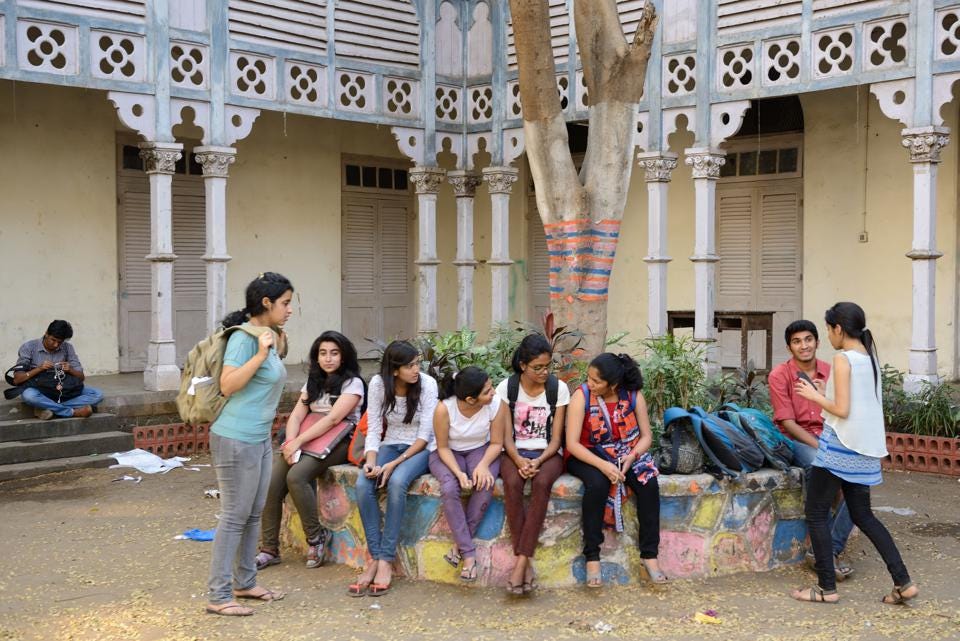India’s economy is in big trouble. In the last week of August, the federal government admitted that the GDP had shrunk by around 24%. For context, GDP of the U.S. contracted by about 9%.
For a young population like India’s, the biggest fear in a shrinking economy is fewer jobs. According to the Centre for Monitoring Indian Economy, in April and May about 120 million people lost their jobs. While many of the jobs were regained, most people are out of salaried positions and many others have settled for lesser paying gigs.
Unsurprisingly, in the pecking order of employment, young women (below the age of 29) rank considerably lower. And they are the worst affected.
In 2019-20, 20% of people employed were aged below 30 years. Between April and June 2020, that came down to 18.8%. But, here’s the clincher. For every eight young men employed in 2019-20, four young woman were also employed. This year, between April and June, that ratio became 9:1. (Source: CMIE data)
Mariyam Daga graduated from a Mumbai college in May 2019, majoring in commerce and accounts. “I used to go to at least two job interviews in a week,” she said. She has stopped going to job interviews since the lockdown in March.

The social cost of younger women not being in paid employment are many. Early marriages and early birth of the first child being two of the most important. According to UNICEF, 27% of girls in India are married before their 18th birthday and 7% are married before the age of 15.
Activists believe the figures could be much higher.
Apart from employment, education has proven to be an antidote to early marriages. Daga is now thinking of pursuing her Masters in Commerce and Economics. However, the pandemic threw the academic calendars out of the window, with many universities being shut till end September. And most offering online classes even when they reopen.
In the absence of job or higher studies, Daga’s mother thinks it best for her daughter to be married off. “There is no guarantee of a job and higher studies were not her first choice anyway,” the mother said.
The situation is worse off in rural India, particularly among vulnerable communities. In a blog for The Centre for the Study of Global Human Movement, a PhD Candidate at the University of Cambridge Centre for Gender Studies, Reetika Revathy Subramanian recounts the plight of 14-year-old Sakhi who belongs to the historically oppressed Banjaracaste in Maharashtra’s severely drought-affected Marathwada region.
“Following the overnight imposition, Sakhi’s parents, employed as migrant sugarcane cutters in the neighbouring state, lost their jobs and had little money to trek their way back home. The government-run school in her village that she attended had also shut down, eliminating her only secure meal for the day.
Driven by debt and distress over the next few weeks, Sakhi’s family now considered her marriage a necessary decision for the very survival of their migrant household. It was to be solemnised in the “safety” of their house without dowry– in the absence of both guests and the authorities,” Subramanian writes.
Authorities received 5,584 phone calls to prevent underage marriages across the country between March and June, according to the Union Ministry of Women and Child Development.
This story indicates that not only are younger women not easily employable but the unemployment of the male members in their families affect them adversely.
A joint report by Bain & Company and Google warned that the prospect for female employment doesn’t look all that bright – pandemic or no pandemic. “Women hold most of the administrative and data-processing roles that artificial intelligence and other technologies threaten to usurp,” the report cites a 2019 study by the Washington-based Institute of Women’s Policy Research. “As routine jobs become automated, the pressure on women will intensify and they will experience higher unemployment rates.”
The way to reverse this is to exert social pressures by resisting patriarchal practices and beliefs.
Daga has decided to look for jobs in a few months when the economy picks up pace. “I work hard at home now. I cook. I clean. That is work too. And it should be looked at as such,” she said.
Published in: Forbes
Published on: September 25 2020
Link: https://www.forbes.com/sites/rakshakumar/2020/09/25/young-women-face-the-brunt-of-indian-economic-downturn/?sh=46cd6ed6d207
